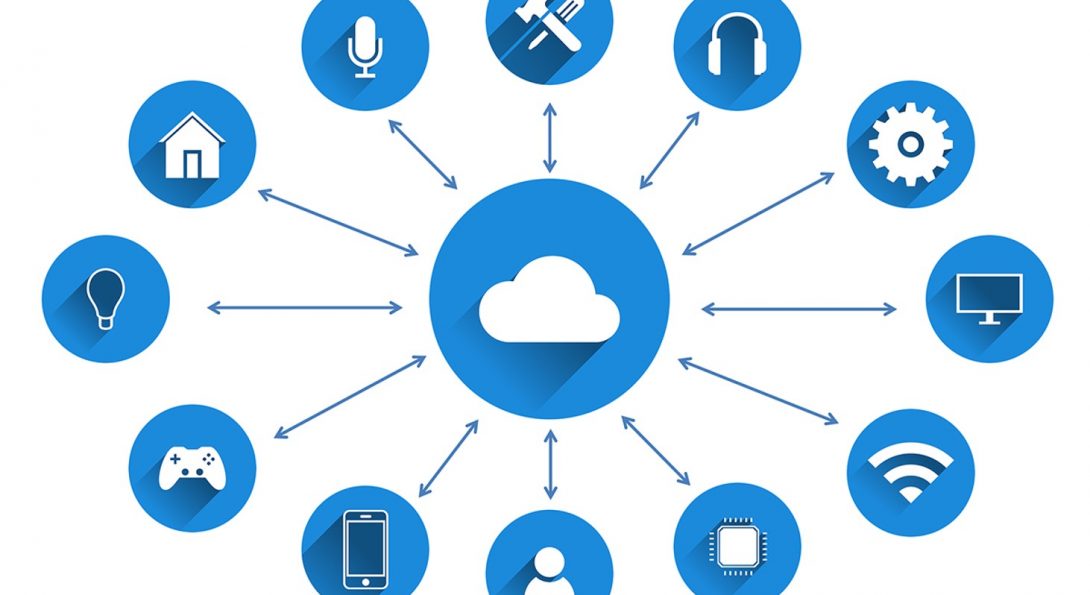Taking research to the ‘edge’

Professor Seferoglu Awarded Five Grants Totaling More Than $1.3M Heading link
ECE Professor Hulya Seferoglu is on a roll! The prolific researcher was awarded five grants in the recent months for a total of more than $1.3 million in research funding. The Department of Electrical and Computer Engineering (ECE) professor has received awards from the National Science Foundation, Army Research Lab, Army Research Office, National Institute of Standards and Technology and an industry grant. She is UIC’s principal investigator (PI) for four of these five awards. Each grant is for a different research project, but they all have a common thread – Edge computing.
Edge computing is about extending the frontier of computing applications, data, and services away from centralized nodes to the logical extremes of a network. It allows analytics and data gathering to materialize at the source.
At the edge devices like smartphones or sensors may be attached to your body to check your health. These devices may have demanding functions that will take a significant amount of time to complete.
“We would like to develop mechanisms to handle these computationally intensive tasks,” said Seferoglu. “One of the approaches to solve this problem is to offload this computationally intensive tasks to the cloud.”
However, there are times when an Internet connection is not available, and you cannot connect to the cloud and offload the tasks. Additionally, this can be expensive as there are fees with cellular and Wi-Fi connections and cloud services. Overcoming these obstacles is something the professor is taking on.
“Another scenario is for military applications. The connectivity to cloud can be lost or compromised,” said Seferoglu. “Also, offloading tasks to cloud may increase delay, because tasks should be sent to the cloud, processed there, and the processed tasks should be received back, which may potentially increase delay. Instead of doing all this, we say we will do things at the “edge.” With edge, I mean your device or the devices around you.”
For military applications, a person may be in the field and they have their smartphone-like devices and these devices potentially combine the computing capabilities and do the computationally intensive tasks together. For more civilian applications, multiple devices like smartphones, tablets and your PC can do this together.
“We are developing tools to make such computations at the edge more reliable and secure,” said Seferoglu. “In terms of reliability, consider a scenario that smartphone A offloads computationally intensive tasks to smartphone B, but smartphone B can move away, or it may be too slow to process tasks. We would like to make this mechanism more reliable. In particular, we aim to design task offloading mechanisms that take into account dynamics of devices at the edge and their time-varying nature.
With a grant from the Army Research Lab, security is another issue she is taking into high consideration. This is a continuation of her previous research, which focused on the Internet of Battlefield Things, which is the military version of Internet of Things.
“If I am offloading computationally intensive tasks to other devices. it may be revealing some information, but I would really like to have this information private. So the question here is while sending these tasks, can I conform to privacy rules,” said Seferoglu. “Moreover, the content of the tasks that I am offloading should not be changed by these devices. This is one of the major challenges.”
Another research project she is working on is robust and resilient networks when there is a natural disaster like a hurricane or mass shooting.
“When first responders go to the field, their connection may not be good, because the infrastructure – like base stations – may not be working or only partially working,” she said. “What we are trying to do is develop on-demand network among multiple first responders in the field, which will allow them to communicate better.”
“If we create this ad hoc network, its reliability is not as much as the infrastructure-based network. There are a lot of reliability problems in terms of connectivity,” she added. “My part in this project is to develop algorithms to provide reliability and robustness.”
The results of some the professor’s research have been published in IEEE conferences and journals, which includes “Dynamic Heterogeneity-Aware Coded Cooperative Computation at the Edge” in IEEE ICNP, and “Predictive Edge Computing with Hard Deadlines” in and “The Evolving Nature of Disaster Management in the Internet and Social Media Era” both in IEEE LANMAN.